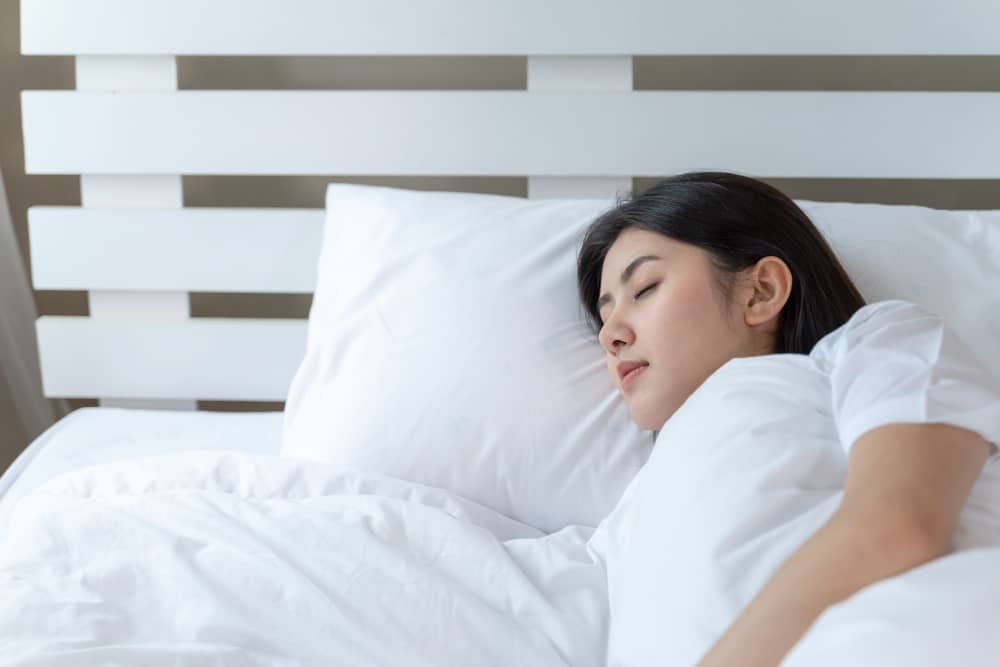Sleep is an important part of our lives that significantly contributes to physical and mental well-being. Although often overlooked, high-quality sleep has broad positive effects on health and overall quality of life. This article will guide you through the importance of good sleep, the factors that influence it, and provide practical tips to improve your sleep quality. By understanding the close relationship between sleep and health, you will have a strong foundation for optimizing your sleep routine to achieve a more balanced and meaningful lifestyle.
The Importance of High-Quality Sleep
Quality sleep is not just a period of rest for the body but also a crucial process that supports optimal bodily and mental functions. Good sleep quality offers numerous benefits to your health:
- Physical Recovery: During sleep, the body undergoes tissue repair, muscle recovery, and cell regeneration. This helps expedite the healing process after injuries or intense physical activity.
- Hormonal Balance: Sufficient sleep plays a vital role in maintaining hormone balance in the body. Sleep disruptions can interfere with the production of important hormones that regulate appetite, metabolism, and stress.
- Immune System Resilience: The immune system functions more effectively while you sleep. Adequate sleep helps fight infections and keeps the body healthy.
- Cognitive Function: Good sleep contributes to optimal cognition, including thinking ability, concentration, and decision-making. Lack of sleep can cloud thinking and reduce mental performance.
- Mental Health: Quality sleep plays a critical role in mental health. Inadequate sleep can increase the risk of anxiety and depression disorders.
- Weight Maintenance: Sleep disturbances can affect appetite regulation and metabolism, potentially leading to weight gain or obesity issues.
- Emotional Regulation: Sufficient sleep helps you manage emotions better. Lack of sleep can increase emotional reactivity and make you more vulnerable to stress.
Factors That Affect Sleep Quality

There are several key factors that can significantly influence your sleep quality. Understanding and addressing these factors can help you create a better sleep routine:
Comfortable Sleep Environment
A comfortable and peaceful sleep environment has a significant impact on sleep quality. Consider the following:
- Bed and Pillow: Ensure that your mattress and pillows provide adequate support for your body and head.
- Darkness: A dark room helps stimulate the production of sleep hormones. Use thick curtains or an eye mask if needed.
- Temperature: A comfortable temperature (usually between 18-20°C) helps the body ease into the sleep phase.
- Noise: Strive for an environment free from noise disturbances that can disrupt your sleep.
Regulation of Sleep Routine
Maintaining a regular sleep routine helps your body regulate its biological clock. Pay attention to the following:
- Wake-Up and Bedtime: Try to wake up and go to bed at the same time every day, even on weekends.
- Morning Light: Exposure to morning sunlight helps regulate your body’s biological clock. Try to engage in outdoor activities in the morning.
Stress Management
Stress can be a significant sleep disruptor. The following stress management strategies can help:
- Relaxation: Relaxation techniques like meditation, deep breathing, or yoga can relieve stress before bedtime.
- Limit Screen Exposure: Avoid gadget screens before bedtime, as blue light can interfere with sleep hormone production.
- Journaling: Writing in a journal or keeping a daily diary can help clear your mind before bedtime.
Tips to Improve Sleep Quality
Improving sleep quality involves several steps that you can incorporate into your daily life. Here are some tips that can help you sleep better:
Establish a Consistent Sleep Routine
- Set a regular bedtime and wake-up time, even on weekends.
- This routine helps regulate your body’s biological clock, making it easier for you to fall asleep and wake up.
Watch Your Eating and Drinking Patterns
- Avoid heavy meals or excessive drinking before bedtime, as active digestion can disrupt sleep.
- Limit caffeine and alcohol consumption, especially in the late afternoon and evening.
Regular Exercise and Physical Activity
- Regular exercise helps improve sleep quality.
- Engage in moderate exercise such as walking, jogging, or yoga, but avoid vigorous activity before bedtime.
Avoid Screen Exposure Before Bed
- Blue light from electronic screens can disrupt sleep hormone production.
- Turn off electronic screens at least an hour before bedtime, and consider reading a book or engaging in relaxing activities instead.
The Role of the Right Mattress and Pillow
Choosing the appropriate mattress and pillow is a crucial factor in creating a comfortable sleep environment that supports high-quality sleep. Here are some things to consider:
Mattress Support for the Spine
- Choose a mattress that provides adequate support for your spine.
- The level of mattress firmness can vary depending on personal preferences, but it’s important to strike a balance between comfort and support.
Select a Pillow Based on Your Sleeping Position
- Your sleeping position influences the type of pillow that is suitable for you.
- If you sleep on your back, choose a pillow that gently supports your neck. For side sleepers, a pillow that cradles the neck and head is a good choice.
Consider the Right Materials
- The materials of the mattress and pillow also affect sleep comfort.
- Mattresses and pillows made from breathable and temperature-regulating materials, such as memory foam or natural latex, can help maintain coolness and minimize sweating.
Replace Mattresses and Pillows Regularly
- Old and worn-out mattresses and pillows may no longer provide optimal support.
- Replace your mattress and pillows periodically to ensure the best sleep quality.
Choosing the right mattress and pillow is an investment in your sleep quality. Take into account your personal preferences and body needs to create a sleep environment that supports your ability to fall asleep comfortably and wake up feeling refreshed and energized in the morning.
The Relationship Between Sleep and Mental Health
Sleep and mental health are closely interconnected. Sleep disturbances can affect mental health, and conversely, mental health issues can disrupt sleep patterns. Here’s how sleep quality interacts with mental health:
Higher Risk of Mental Disorders
- Lack of sleep is associated with an increased risk of mental disorders, including depression and anxiety.
- People with insomnia are more likely to experience mental health disorders.
Impact on Mood
- Sleep deprivation can lead to significant mood changes, such as irritability, anger, or feelings of sadness.
- Sufficient sleep helps maintain emotional balance and enhances stress tolerance.
Cyclical Effects
- Sleep disorders can trigger or worsen mental health disorders, prolonging the duration of depression or intensifying anxiety symptoms.
- Poor mental health can also disrupt sleep, creating a challenging cycle to break.
Creativity and Cognition
- Good sleep plays a crucial role in information processing and creativity.
- Sleep disturbances can inhibit clear thinking, decision-making, and problem-solving abilities.
Better Mental Health Management
- Improving sleep quality can be an essential part of managing mental health issues.
- Good sleep can support the effectiveness of therapy and symptom management.
Addressing sleep problems and prioritizing sleep hygiene can have a positive impact on mental health, helping individuals maintain emotional well-being and manage mental health challenges more effectively.
The Impact of Sleep Deprivation on Physical Health

Sleep deprivation not only affects mental health but also has serious consequences for physical health. Here are some important effects of sleep deprivation on your body:
Weakening of the Immune System
- Sleep deprivation can weaken your immune system.
- This increases the risk of infections, including common colds and the flu.
Disruption of Appetite-Regulating Hormones
- Lack of sleep can disrupt hormones that regulate appetite, leading to increased hunger.
- This can contribute to weight gain and obesity.
Metabolic Disturbances and Diabetes
- Sleep deprivation can disrupt blood sugar and insulin regulation.
- This increases the risk of type 2 diabetes and other metabolic issues.
Heart Disease and Hypertension
- Chronic sleep disturbances can increase the risk of heart disease and high blood pressure.
- Sufficient sleep supports healthy cardiovascular function.
Cancer Risk
- Some studies have linked sleep deprivation to an increased risk of several types of cancer, including breast and colorectal cancer.
Brain Function Impairment
- Sleep deprivation can affect concentration, cognitive performance, and memory.
- It can also increase the risk of neurodegenerative diseases such as Alzheimer’s.
Increased Risk of Accidents
- Sleep deprivation can impair your alertness and reaction time when driving or engaging in other hazardous activities.
Strategies for Dealing with Insomnia and Other Sleep Disorders
Addressing sleep disorders like insomnia requires the right approach and discipline. Here are some strategies that can help you overcome sleep problems:
Establish a Consistent Sleep Routine
- Set the same bedtime and wake-up time every day, even on weekends.
- This helps regulate your body’s biological clock.
Limit Lengthy Daytime Naps
- Extended daytime naps can disrupt nighttime sleep.
- If you need to nap, limit the duration.
Reduce Nighttime Light Exposure
- Blue light from electronic screens can interfere with sleep hormone production.
- Turn off screens or use the night mode on your devices before bedtime.
Avoid Caffeine and Alcohol Before Bed
- Caffeine and alcohol can disrupt sleep and affect its quality.
- Avoid caffeine intake several hours before bedtime, and limit alcohol in the evening.
Create a Comfortable Sleep Environment
- Ensure your bedroom is dark, quiet, and comfortable.
- Consider using blackout curtains or earplugs if necessary.
Don’t Spend Too Much Time in Bed Awake
- Use your bed only for sleep and intimate activities.
- If you’re awake for more than 20-30 minutes, it’s better to get up and engage in a relaxing activity outside the bedroom.
Consider Cognitive Behavioral Therapy
- Cognitive-behavioral therapy can help address sleep-related anxiety and improve poor sleep patterns.
Avoid Clock-Watching
- Checking the clock when awake in the middle of the night can increase stress.
- If you wake up, try not to look at the time.
Relaxation Tips to Facilitate Sleep
Relaxation is key to preparing your body and mind for sleep. Here are some relaxation techniques that can help you achieve a more restful sleep:
Meditation
- Practice meditation with a focus on your breath and mindful concentration.
- Meditation helps calm anxious thoughts and reduces stress.
Deep Breathing
- Deep breathing exercises help lower heart rate and relax the nervous system.
- Try techniques like the 4-7-8 breath: inhale for 4 seconds, hold for 7 seconds, and exhale for 8 seconds.
Yoga
- Yoga combines body movements, breathing, and meditation.
- Gentle pre-sleep yoga practices can help reduce physical and mental tension.
Read More : Meditation Techniques for Mental and Physical Health: Beginner’s Guide
Visualization
- Imagine a peaceful and serene place as you lie in bed.
- This visualization process can help relax your mind and prepare for sleep.
Progressive Muscle Relaxation
- Starting from your toes and gradually working upward, consciously relax each muscle group.
- This helps release physical tension and promotes relaxation.
Music or Natural Sounds
- Listen to calming instrumental music or nature sounds like waves or rain.
- These sounds can create a peaceful environment and aid in sleep.
Aromatherapy
- Use essential oils like lavender or chamomile known for their calming effects.
- Apply a few drops of essential oil to your pillow or use a diffuser in the bedroom.
Practice some of these techniques before bedtime to prepare your body for a comfortable sleep. Choose the techniques that resonate with you and create a relaxation routine that helps you experience deeper and more rejuvenating sleep.
Optimizing Your Sleep Environment
A good sleep environment can make a significant difference in the quality of your sleep. Here’s how to optimize your sleep environment to create an ideal place for rest:
Cleanliness and Comfort
- Ensure your bed is always clean and comfortable.
- Change your sheets regularly and keep the bed free of dust and allergens.
Proper Lighting
- Make the bedroom dark during sleep by using thick curtains or an eye mask.
- Excess light can disrupt the production of sleep hormones.
Comfortable Temperature
- Maintain the room temperature between 18-20°C for comfortable sleep.
- Use a heater or air conditioner as needed.
Minimal Noise
- If possible, avoid disruptive noise around your sleeping area.
- Use earplugs or white noise if your environment is noisy.
Suitable Mattress and Pillow
- Choose a mattress and pillow that support your body and provide comfort.
- Tailor them to your sleeping preferences, whether you sleep on your back or side.
Avoid Technology in the Bedroom
- Refrain from bringing gadgets or electronic devices into the bedroom.
- The blue light from screens can disrupt your sleep.
Create a Peaceful Atmosphere
- Use relaxation techniques like meditation or aromatherapy to create a calm environment before sleep.
Limit Non-Sleep Activities
- Use the bedroom only for sleeping and intimate activities.
- Avoid working or watching TV in bed.
By optimizing your sleep environment, you can create conditions that support high-quality sleep. Small changes in your sleep environment can have a significant impact on your sleep quality and overall well-being.
Quality Sleep for a Better Lifestyle
High-quality sleep is a crucial foundation for a healthy and productive lifestyle. Optimizing your sleep can provide several profound benefits:
Increased Energy
- Good sleep provides the necessary energy to tackle daily activities.
- You’ll feel more refreshed and better prepared to face challenges.
Maximized Cognitive Performance
- Sufficient sleep helps maintain optimal brain function.
- Your thinking, concentration, and creativity will improve.
Emotional Balance
- Adequate sleep helps maintain emotional balance and reduces the risk of stress and anxiety disorders.
- You’ll feel more capable of handling difficult situations calmly.
Optimal Physical Health
- Quality sleep supports a healthy immune system and metabolism.
- You have a lower chance of experiencing illnesses and health issues.
Better Sports Performance
- Adequate sleep is crucial for physical recovery after exercise.
- This helps enhance your overall sports performance.
Increased Productivity
- With enough sleep, you’ll be more productive and efficient in your daily tasks.
- You can accomplish tasks more effectively in less time.
Balanced Lifestyle
- Understanding the importance of sleep helps you prioritize your health and well-being.
- You can make decisions that support a more balanced lifestyle.
Prioritizing high-quality sleep is a fundamental aspect of achieving a balanced and fulfilling lifestyle. It contributes significantly to your physical, mental, and emotional well-being, ultimately allowing you to lead a healthier and more productive life.
Conclusion
High-quality sleep has a significant impact on our physical and mental health. This article has outlined the importance of maintaining good sleep habits and provided various strategies to improve your sleep quality. From optimizing your sleep environment to addressing sleep disorders like insomnia, each step you take has the potential to bring positive changes to your life.
Sleep is not just about rest; it’s also about recovery, regeneration, and balance. By making small changes in your sleep routine, you can experience benefits such as increased energy, emotional balance, optimal mental performance, and better physical health. It’s important to remember that these changes take time and consistency, but the results will have long-lasting and meaningful effects.
By prioritizing high-quality sleep and adopting the strategies outlined in this article, you are choosing to invest in your own well-being. In a busy world, maintaining sleep quality is a crucial step towards a balanced, happy, and productive lifestyle. If you have chronic or complex sleep issues, don’t hesitate to seek help from healthcare professionals. Remember, good sleep is a valuable investment in your overall quality of life.





